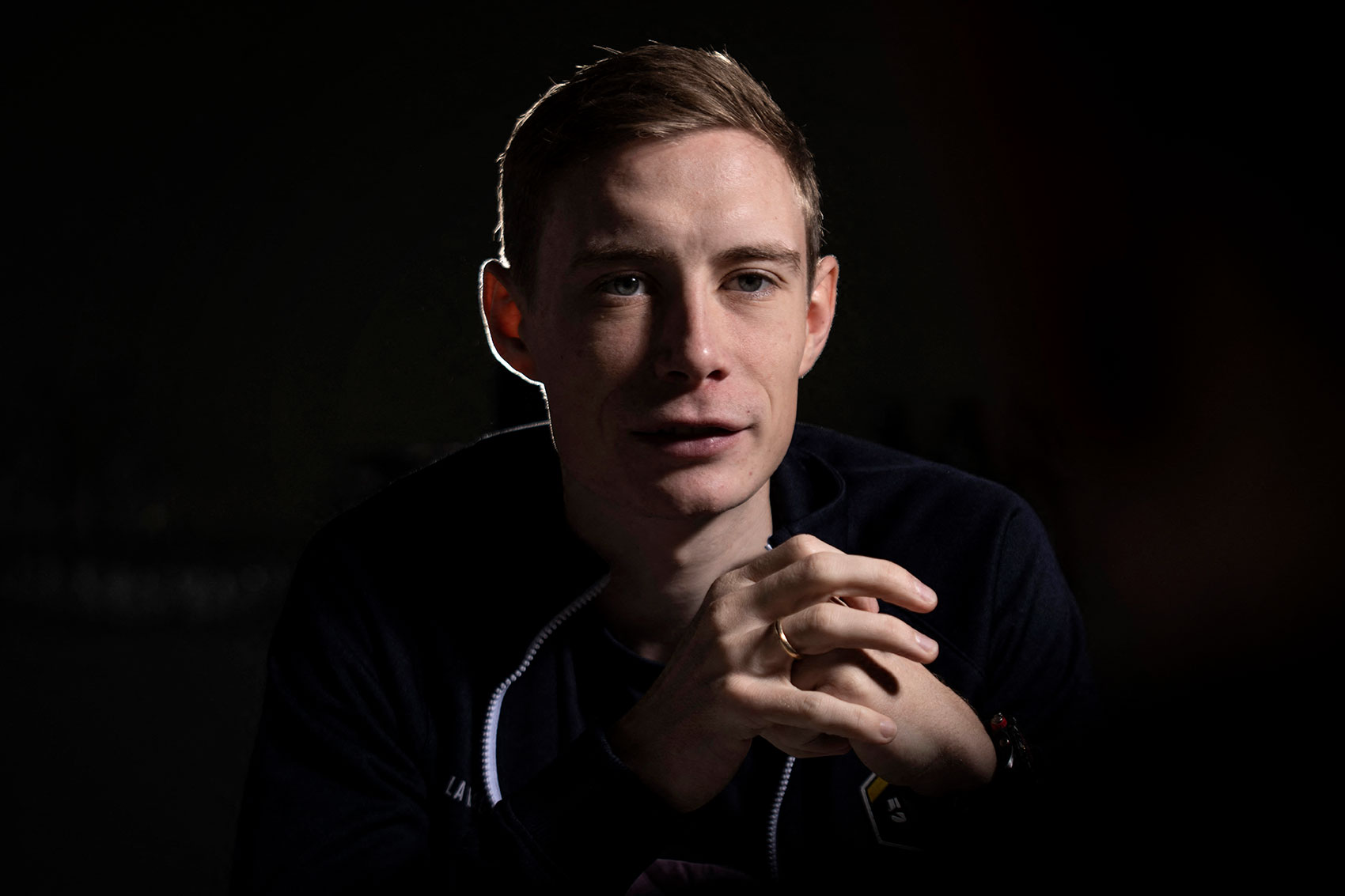Jonas Vingegaard reveals details of single missed anti-doping test
'I don't take anything, and I don't think that the rest of the peloton does either' says Dane, who missed test in 2019

Jonas Vingegaard has revealed that he has a missed anti-doping test on his record, saying that it's "definitely something I think about afterwards to make sure it doesn't happen again."
The double Tour de France winner spoke extensively about cycling's history, anti-doping, and testing in an interview with Danish newspaper Ekstra Bladet. He said that "it's a shame" that the sport is suffering from the numerous doping scandals of the past, while also acknowledging Jumbo-Visma teammate Michel Hessmann's ongoing case.
Speaking about his missed test, which he says occurred in 2019, Vingegaard spoke about the circumstances that led to it, while noting that he has been tested around 60-70 times during the 2023 season.
"I had left my mobile phone in the kitchen, and then our doorbell didn't work. They tried to call me, and it was clear that it was impossible to answer," he told Ekstra Bladet. "Of course, it's not cool. But then they came two days later.
Jonas Vingegaard won't be surprised if he's left out of Danish squad for Paris Olympics
Jumbo-Visma rider Michel Hessmann's B-sample tests positive for diuretic
German authorities investigate Hessmann after positive doping control
Jumbo-Visma to 'look ourselves in the mirror' after Hessmann anti-doping case
"You get tested there, but of course, it's not great to have a missed test hanging over you. It's definitely something I think about afterwards to make sure it doesn't happen again.
"I don't think it's that difficult," he added, referring to complying with the Whereabouts system where riders have to provide daily timeslots to be available for testing. "You always have to remember it. It's a hassle, but when I'm just at home, it's not so difficult."
Vingegaard said that the increased amount of testing in modern cycling is "a good thing". However, he noted that riders claiming they always test negative "rings hollow", given that the same claims were made in the EPO-fuelled years of the 1990s and 2000s.
The latest race content, interviews, features, reviews and expert buying guides, direct to your inbox!
"It's a good thing to be tested all the time. It helps in a way. All your tests are negative, but in a way, it rings hollow because 20 years ago they were tested too," he said.
"Somehow riders can still cheat, so I don't want to just say – as they did in the old days – that I am the rider who is tested the most. I don't test positive. They did something back then, and people will definitely believe that riders will do it again."
Vingegaard also spoke about Michel Hessmann, the German rider who is facing a ban of up to four years from the sport after testing positive for a diuretic in an out-of-competition test back in June.
"I don't know how it got into his body," he said. "But I think every cyclist's biggest fear is that you get it through some food or something you eat, and that way test positive without your intention has been cheating, but you still get it into your body."
Hessmann faces a long spell away from racing after his B-sample came back positive earlier this month. If he can prove that he tested positive due to a contaminated supplement or food, then a potential four-year ban could be reduced to two years.
His team has pledged to "look in the mirror ourselves – are we doing everything right?" in the wake of the case.
The 22-year-old's case is one of strikingly few positives that emerge at the top level of cycling nowadays. The UCI's provisional suspensions and sanctions lists are packed with lesser-known riders from the lower rungs of the sport in Asia, South America, and Portugal testing positive for EPO and steroids.
Cycling at WorldTour level, then, appears to be cleaner than ever with fewer doping busts and positive tests scandalising the very elite of the sport.
"I think it is a shame that we are suffering from what happened 20-30 years ago," Vingegaard said.
"I don't want to hide it, but because it has happened, I still think it's important to talk about the past. Because if you just sweep it under the carpet, then it's clear that people might still not care if everyone cheats.
"If you talk about it, there's a better chance that you won't cheat, I think. Maybe it's a way to prevent it from happening in the future.
"I don't take anything, and I don't think that the rest of the peloton does either. Since I can win the Tour de France twice without taking anything, I also believe that everyone else doesn't take anything either."

Dani Ostanek is Senior News Writer at Cyclingnews, having joined in 2017 as a freelance contributor and later being hired full-time. Before joining the team, she had written for numerous major publications in the cycling world, including Cycling Weekly and Rouleur.